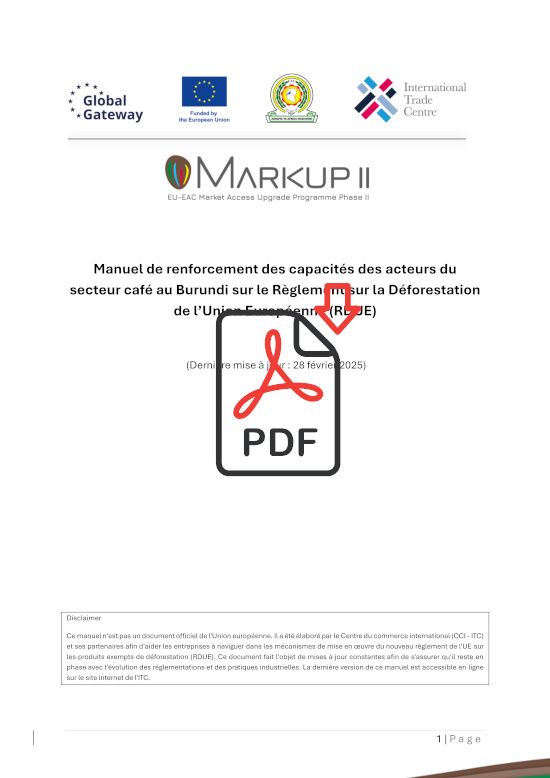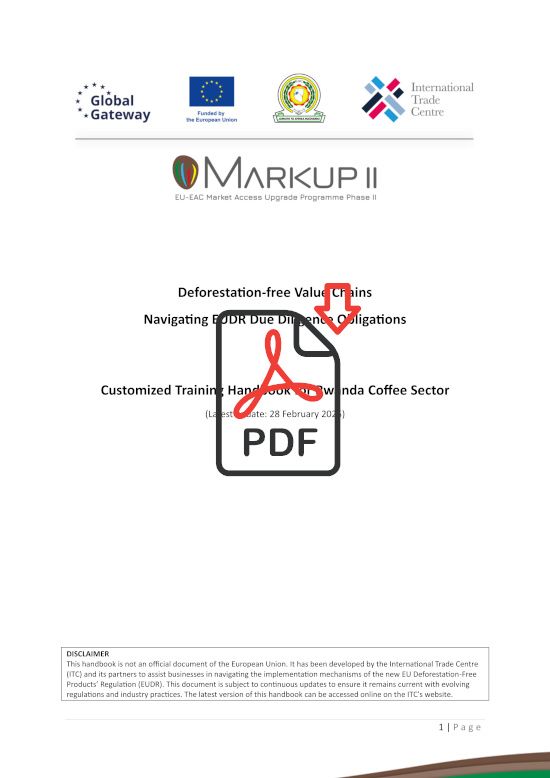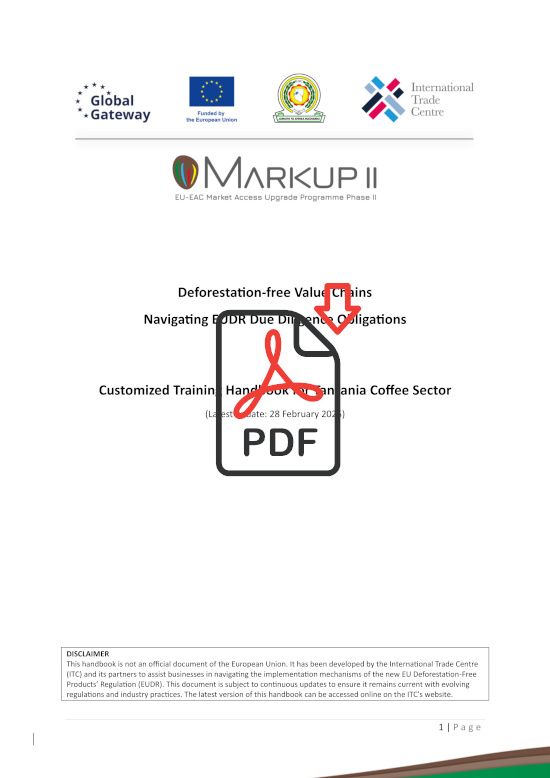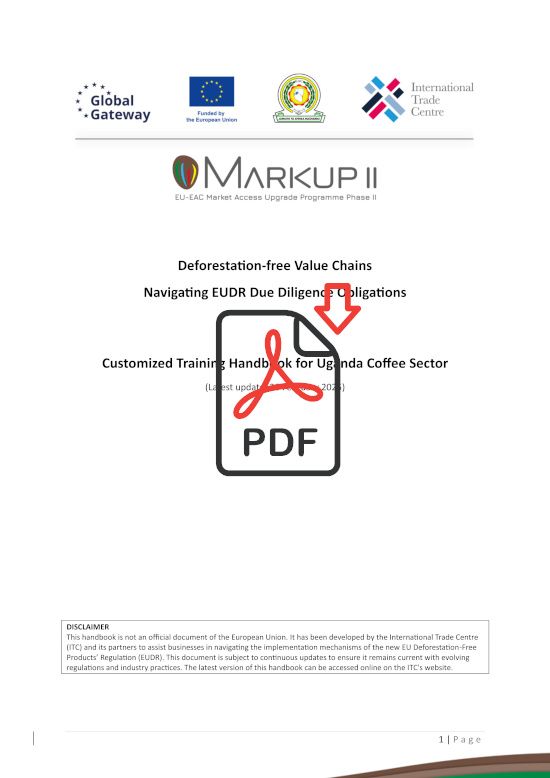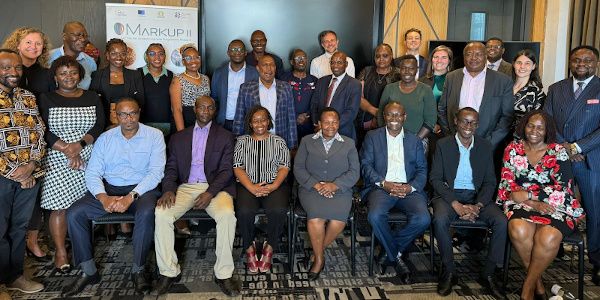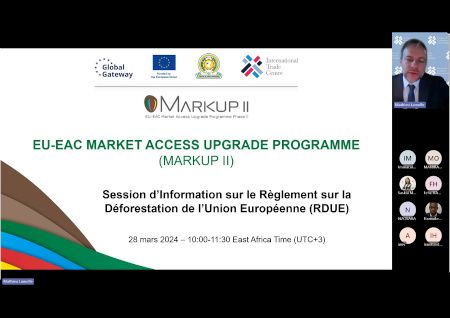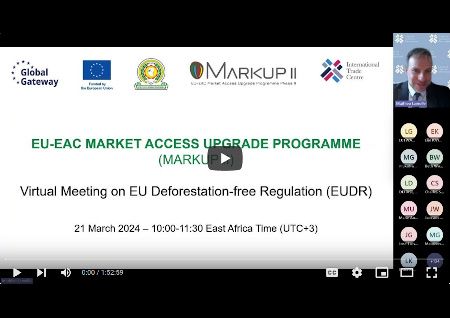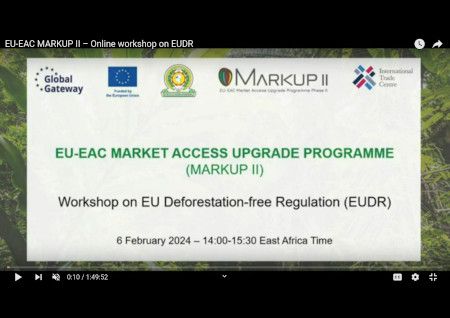Markup II SME support for EUDR compliance
Overview of the European Union Deforestation Regulation (EUDR)
The European Union Deforestation Regulation (EUDR) entered into force on 30 June 2023 as part of the EU Green Deal. It aims at eliminating deforestation from global supply chains and requires companies importing commodities to the EU, such as coffee, cocoa, and leather, to demonstrate that these products do not contribute to deforestation. By implementing strict traceability and due diligence requirements, the EUDR encourages sustainable practices that protect natural ecosystems and promote fairer, greener trade.
MARKUP's role in supporting EUDR compliance
Under the MARKUP II, ITC provides targeted support to coffee, cocoa, and leather producers in East Africa to help them meet EUDR requirements. With tailored technical assistance, MARKUP II addresses the specific needs of these sectors in Kenya, Uganda, Rwanda, Burundi, and Tanzania. Through capacity-building programs, training, and resource provision, ITC enables producers and exporters to adapt to EUDR requirements, strengthen market access, and promote environmentally responsible trade.
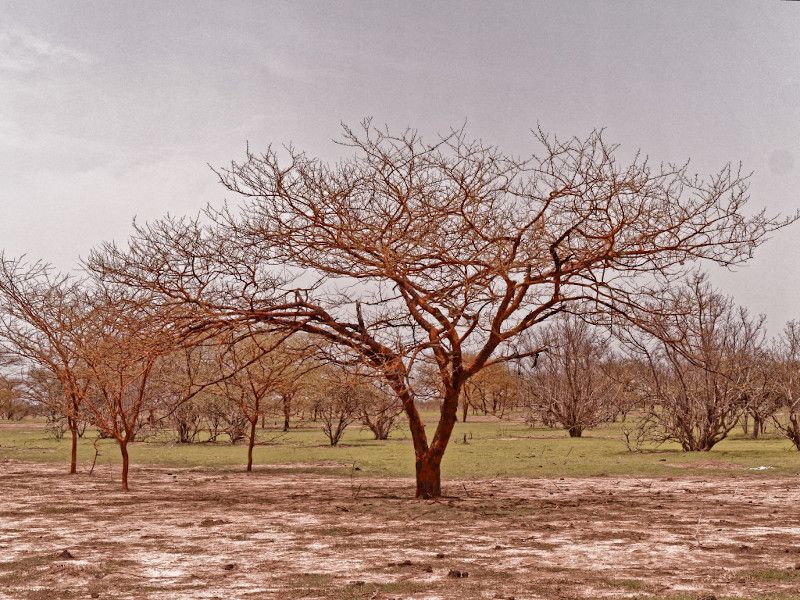
Scope of MARKUP interventions on EUDR
- Coffee
- In Kenya, Uganda, Rwanda, Burundi, and Tanzania, MARKUP supports coffee producers and exporters in understanding and applying EUDR requirements. Activities include tailored training on traceability, data collection to ensure sustainable practices that are recognized by European market importers.
- Cocoa
- MARKUP’s cocoa sector support in Uganda focuses on building capacity for producers to comply with EUDR requirements. Interventions include guidance on environmental responsibility and the development of systems that trace cocoa beans from farm to export, assuring buyers of sustainable sourcing.
- Leather
- In Kenya, MARKUP raises awareness on EUDR and implications on leather production as well as best practices enhancing traceability systems and equipping businesses with the tools needed for EUDR compliance.
Types of activities provided by ITC under MARKUP
-
1. Training and Capacity BuildingMARKUP offers workshops, seminars, and hands-on training to build local capacities in sustainable production practices, traceability, and data collection for regulatory compliance. This empowers producers, cooperatives and exporters to meet the data and documentation requirements of the EUDR.
-
2. Technical Assistance and Resource DevelopmentTo support ongoing EUDR compliance, MARKUP develops tailored resources such as the EUDR handbook series for coffee, cocoa, and leather sectors, adapting ITC’s guides to the specific needs of East African producers.
-
3. Data Collection and Traceability ToolsMARKUP helps stakeholders implement robust methodologies and leverage tools including mobile phone applications and third-party data collection systems that meet EUDR's strict data and traceability requirements.



